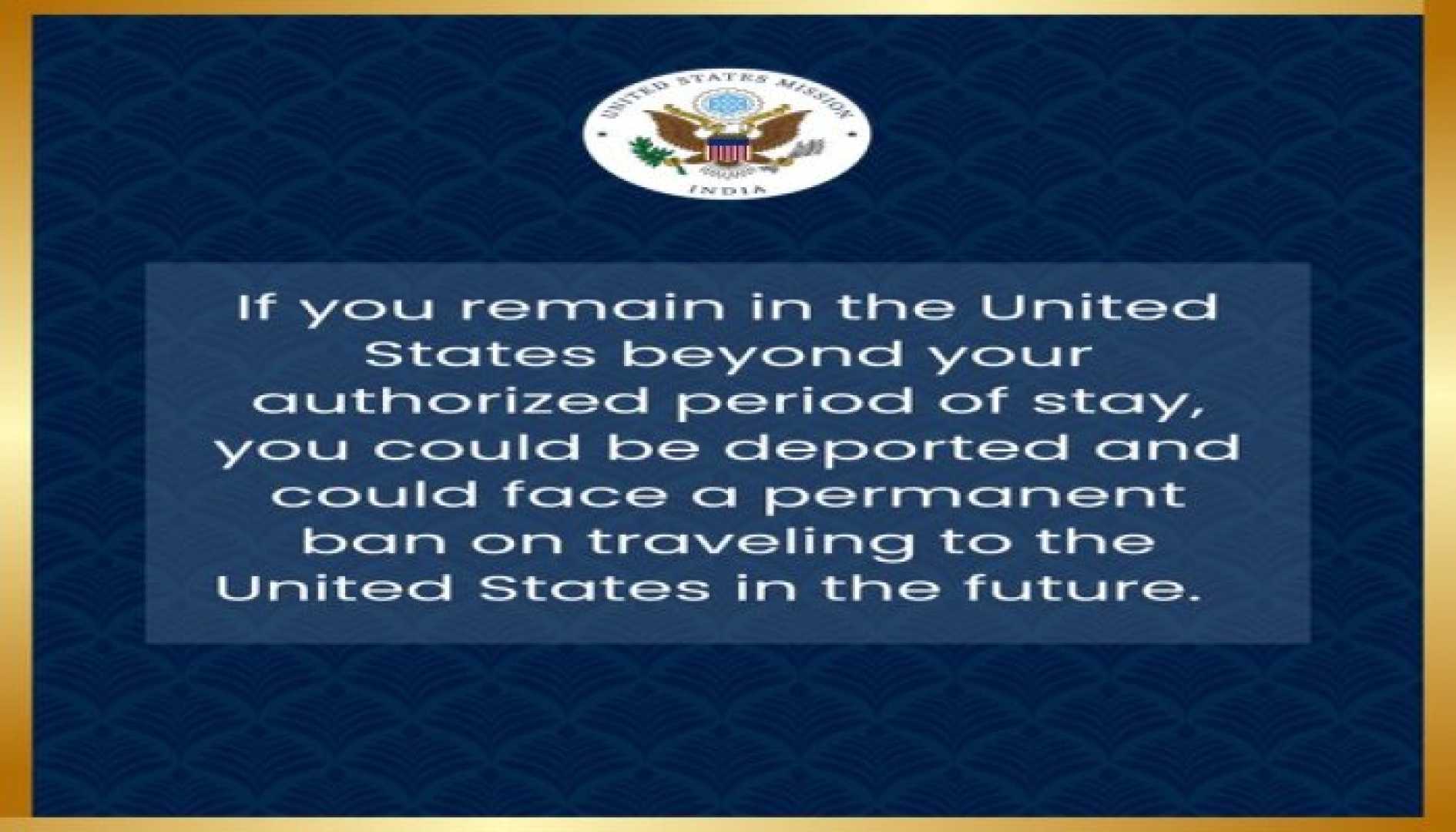News
US Warns Foreigners: Overstay Visa and Face Deportation

New Delhi, India — The U.S. Embassy in India issued a strong warning on Saturday regarding the consequences of overstaying visas in the United States. The alert comes amid heightened immigration enforcement under President Donald Trump‘s administration.
The embassy posted on social media platform X, stating, “If you remain in the United States beyond your authorized period of stay, you could be deported and could face a permanent ban on traveling to the United States in the future.” This advisory applies to all foreign nationals, particularly Indian citizens on various visa types, including work, student, and tourist visas.
The allowed duration of stay is typically recorded on the I-94 form, which is provided to visitors upon entry into the U.S. Overstaying even briefly can result in severe legal implications, jeopardizing long term aspirations such as education, employment, or family reunification in the U.S.
In light of ongoing complications, the embassy advised individuals facing delays to contact the United States Citizenship and Immigration Services (USCIS) promptly to explore legal options to extend their stay without penalties.
Earlier this year, U.S. Department of Homeland Security Secretary Kristi Noem reminded foreign nationals that anyone who remains in the U.S. for more than 30 days must register under the Alien Registration Act by April 11. Failing to register could lead to fines or imprisonment.
USCIS has reported a significant drop in registrations for the current fiscal year, with 343,981 eligible registrations compared to 470,342 in FY 2025. This decline is attributed partly to increased application fees, such as the rise in costs for filing H-1B visas from $10 to $215 as per the Biden Administration’s new regulations.
As part of reinforcing immigration laws, the embassy’s warning plays a crucial role in reminding visa holders to adhere to their visa conditions to avoid deportation risks.












